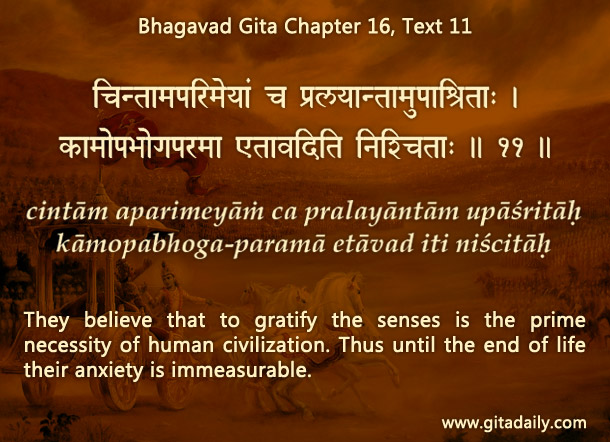Some people say, “I am interested only in the here-and-now, in the visible and the tangible. I am not interested in philosophy.”
However, we all have some philosophy. In a nontechnical sense, philosophy refers to our worldview, and we all have some way of looking at the world. For most of us, that way is probably the contemporary culture’s default philosophy – materialism – which holds that matter is all that exists. The Bhagavad-gita (16.11) states that such materialists believe that sensual gratification is life’s ultimate purpose.
Dismissing philosophy as dealing only with invisible, abstract, remote concepts, materialists claim to enjoy only tangible, visible things. Actually however, even for enjoying the visible, they rely on the invisible. For enjoying sensual pleasures, they use technology, and technology is based on science, which operates by looking beyond visible phenomena to invisible theoretical constructs to explain those phenomena. And the more advanced the science, the more abstract are its theoretical constructs. For example, much of quantum physics makes no sense in terms of the visible. So, even within a materialistic worldview, the visible is inextricably linked with the invisible.
When we uncritically default to such an internally inconsistent form of materialism, we end up with an unthought philosophy – unthought not in the sense that no one has ever thought of it before, but in the sense that we haven’t arrived at it through careful thinking.
Given that we can’t live without philosophy, it’s better to think carefully about it. The Bhagavad-gita offers a majestic God-centered spiritual philosophy that explains both the visible and the invisible worlds, as well as their inter-relation. Additionally, it provides time-honored guidelines for living harmoniously in the visible world and progressing towards the invisible world, wherein are fulfilled forever our deepest aspirations for enduring meaning and joy.
To know more about this verse, please click on the image
Explanation of article:
Podcast:


Comment GITA is the best recipe of philosophy